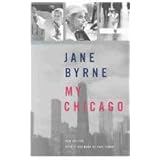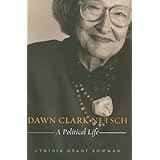
Average Reviews:

(More customer reviews)Are you looking to buy My Chicago? Here is the right place to find the great deals. we can offer discounts of up to 90% on My Chicago. Check out the link below:
>> Click Here to See Compare Prices and Get the Best Offers
My Chicago ReviewThis book serves as a combination of autobiography of a former Chiago Mayor and history book of Chicago politics. It is an excellent presentation of city govenment from an insider and historian. Readers will learn important lessons on policy problems facing big cities and advice on how to handle them.In 1964, Chicago Mayor Richard Daley met and encouraged the 26 year old Jane Byrne, who he kept seeing at meetings, to contact her Alderman and become politically active.
She knew the history of Chicago politics. The Democratic Party under Mayor Anton Cermak created an ethnic coalition that excluded Italian Americans and African Americans, who tended to be more loyal to Bill Thompson's Republican organization. The Cermak organization campaigned for the party slate and not for individual candidates. When Cermak died, there was a scramble to take power that was full of secret meetings.
In 1960, Mayor Daley was upset when the John Kennedy for President campaign opened a campaign office in Chicago. The office recruited many ant-Daley Democrats. Daley insisted he ran all Democratic campaigns in Chicago. Bobby Kennedy met with Daley and explained the Kennedy campaign had an office in all big cities and it would seem the Kennedy campaign was ignoring Chicago if they didn't have one. Daley demurred but insisted on being in charge of all campaign events. Daley refused to meet with any Kennedy campaign officials except for John's father, Joseph Kennedy. The Democrats were concerned about Republican vote stealing in downstate Illinois. Daley deliberately withheld full reporting of Chicago's results so downstate Republicans would not know how many votes they needed to falsify in their totals.
Byrne volunteed for the local Democratic Party organization. She campaigned door to door. Mayor Daley sponsored Byrne to work on the War on Poverty. She heard complaints about crooked Health Board inspectors allowing spoiled food to be sold to poor people. Building code violations continued long after court orders to correct them were issued. Police were not enforcing laws on sales to alcohol to minor in poorer neighborhoods. The poverty program reduced criticism of Daley's government by hiring more poor people. Many jobs had yet been given job descriptions. The criticisms continued. A police shooting and wounding of a Hispanic protestor who drew a gun led to two days of riots.
Violent protest continued through much of the summer of 1966. Daley promised to build some swimming pools and opened fire hydrants with sprinklers in poorer African American neighborhoods. Daley though failed to significantly diminish his critics of his poverty programs.
In 1967, Daley appointed Byrne as Commissioner of the Weights and Measures Department. She was the first female Cabinet level Commissioner in any large American city. Byrne began giving daily assignments to her 50 inspectors to guarantee they were on the job.
After being appointed as Commissioner of Consumer Affairs in 1968, Byrne discovered there was a continuation of a long history of corrupt weights and measures inspectors. She notes Chicago has a long history of business influence and payoffs to government leaders.
Byrne learned that violating merchants usually faced office hearings where they were dealt with lightly. Byrne insisted citation be issued to appear in court and she was to receive copies of all citations. Byrne went along on inspections. She realized she needed more African American inspectors to go into mostly Black neighborhoods for inspections.
Byrne refused a suggestion of a bribe. Daley told her she did the right thing. Daley stated he didn't take bribes, either.
Byrne learned some inspectors increased their payoff demands from businesses after she became stricter. She notified the Department of Investigations. Some inspectors began harassing the stores that spoke up, by issuing them many citations, including for mislabeling oyster crackers because they don't contain oysters. Byrne realized if she halted even frivolous citations she could be accused of playing favoritism. She let them all proceed to court, the the Judges dismissed the frivolous suits.
Patricia Daley, the Mayor's wife, told Byrne that Daley wanted to support Robert Kennedy for President in 1968, yet Daley feared supporting Kennedy would get him assassinated. He feared Kennedy's eventual assassination was part of a plot.
Meanwhile, Daley insisted on loyalty. He refused to slate his previous top vote getter Adlai Stevenson III for Governor because Stevenson opposed President Lyndon Johnson's stance on the Vietnam War. Daley though advised Johnson that Daley thought Johnson would lose reelection. This could have factored into Johnson's decision not to run for reelection.
Daley blundered badly when rioting began and he ordered the Police Superintendent that officers should "shoot to kill". Daley tried to explain he meant that order only for arsonists. There was a great resulting public outcry.
Daley faced further criticism when police shot and killed Black Panther leader Fred Hampton. The press discovered inconsistencies in the police report. Daley responded to criticism by attacking Nixon and Republicans for inflation. The economic issues worked more with the public and Daley held onto power.
Byrne believes Mayor Daley took too much credit for downtown economic development. She believes most of it would have happened regardless of who was Mayor. She does note Daley was close to big business and that he reduced their assessment for lower taxes. Daley controlled 40,000 city jobs which added to his political strength in his dual role as Democratic City Chairman.
New Democratic Party rules required more party official representation of women and racial minorities. Daley made Byrne a Democratic National Committee woman.
Daley had Byrne establish a separate independent Democratic organization in two wards. The organization would attack Daley but would be secretly funded by his supporters.
Daley became ill. He appointed Byrne Co-Chairperson of the Cook County Democratic Center Committee and this was ratified by the Central Committee. Daley's son began cutting off long time associates form their ill father. Daley then died.
The President Pro Tem of City Council, under law, serves as Mayor until the Aldermen select an Alderman to be Mayor. The new Mayor, William Frost, was not acceptable to the party machinery. He was denied entrance to the Mayor's office by the police.
The aldermen elected Michael Bilandic as Mayor. Bilandic went on to win the next scheduled election for Mayor.
There were no campaign finance disclosure laws then. Daley's son, Michael, the Cook County Democratic Party Counsel, announced the party was out of money. Critics claimed as much as $20 million might have been missing. This issue has never been resolved.
Chicago cab owners reduced costs by making many of their drivers as independents who leased their cabs. Thus the drivers no longer had benefits paid for by the employer. Byrne challenged a rate hike. The cab companies refused to provide financial data. Byrne was upset by this.
Mayor Bilandic fired Byrne. Public opinion sides with Byrne over her firing. Jobless, Byrne decided to run a low budget campaign for Mayor. Byrne was elected.
Mayor Byrne distrusted powerful Alderman Ed Vrdolyak. She refused to meet him without another person being present.
Byrne learned as Mayor that Daley kept spending even as Federal funds disappeared. The city had no funds and was near bankruptcy. Financial advisors recommended she keep this a secret from bond rates and the public and that a midyear correction be announced with 2,000 city employees being laid off to fill the gap. Byrne decided not to hide the truth and announced the crisism
As Mayor, Byrne was upset the police were not as concerned as she felt that should be concerning gang killings.
As Mayor, Byrne met Ireland's Prime Minister Jack Lynch. Lynch explained that it was the strongest of the Irish who found ways to obtain and survive passage to America. Irish Americans were a leading segment of the Chicago Democratic Party organization. Irish Americans also had an organizational advantage over other newly arriving ethnic groups as they already spoke English.
Criminal elements sometimes persuaded government leaders to let their criminal activities operate. Even rival newspapers were not above unethical behavior by hiring people to attack newsstand owners and newsboys selling rival newspapers. Even a paper's own newsboys could be beaten, and some died, for failing to sell their quota of papers.
When Pope John Paul II scheduled a visit to Chicago, the ACLU won a lawsuit to guarantee no public funds would be spent on the visit. John Cardinal Cody mentioned to Mayor Byrne the streets and curbs near where the Pope and his party would stay required work. They were repaired. Byrne was upset to discover reports she had failed to invite the widow of Mayor Daley to meet the Pope. The Mayor's office did not create the list invitation first. Further, she learned Mrs. Daley had been personally handed a schedule of events. Byrne realized that continuations of feuds were all parts of politics.
Mayor Byrne met with President Ronald Reagan. Reagan agreed with an idea of categorizing people and moving poorer people with Federal assistance in live in Enterprise Zones of empty land that was hard to develop. Byrne was horrified by the concept Reagan suggested of forcibly removing people to live in designed areas...Read more›My Chicago Overview
Want to learn more information about My Chicago?
>> Click Here to See All Customer Reviews & Ratings Now

